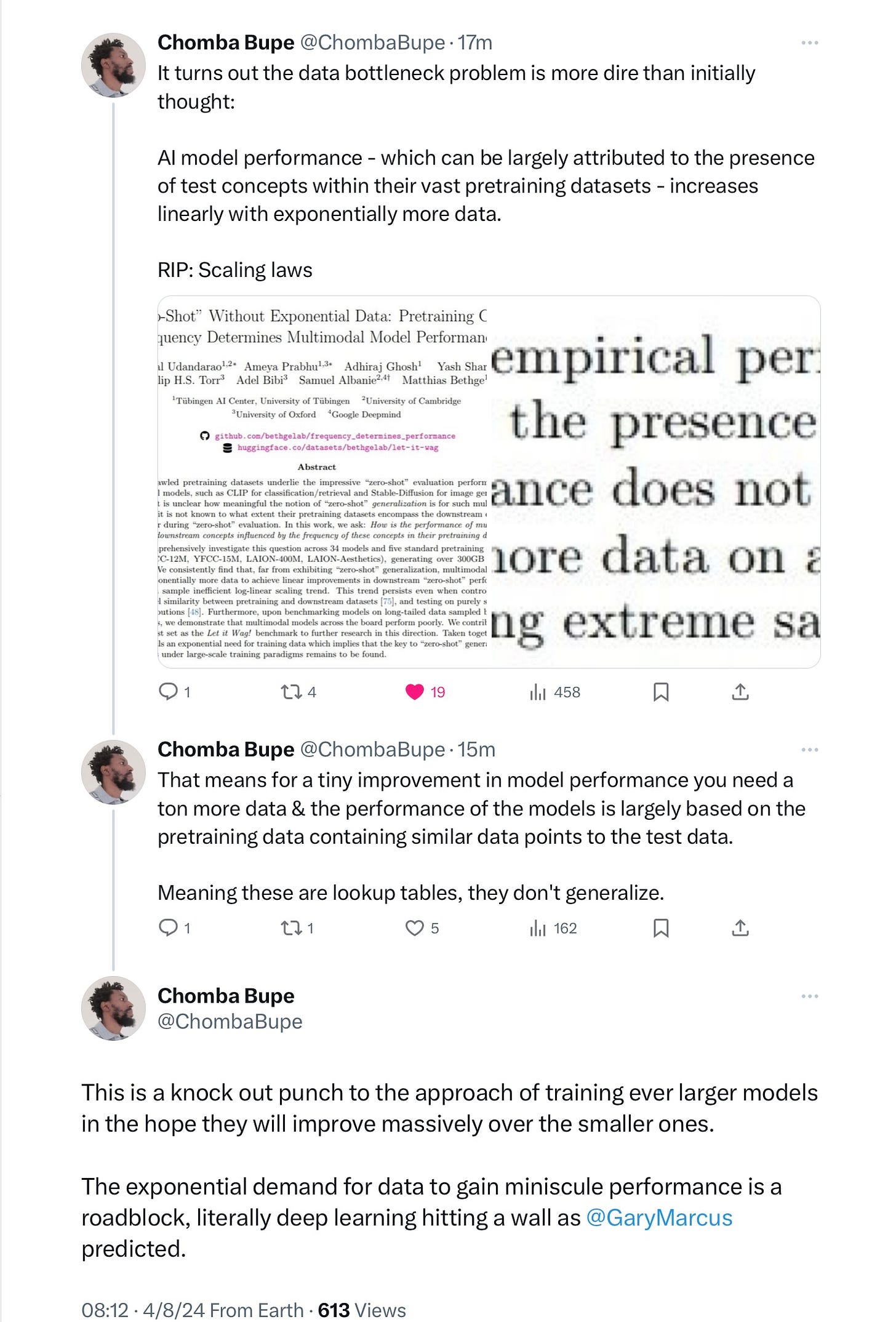Breaking news: Scaling will never get us to AGI
A new result casts serious doubt on the viability of scaling
Neural networks (at least in the configurations that have been dominant over the last three decades) have trouble generalizing beyond the multidimensional space that surrounds their training examples. That limits their ability to reason and plan reliably. It also drives their greediness with data, and even the ethical choices their developers have been making. There will never be enough data; there will always be outliers. This is why driverless cars are still just demos, and why LLMs will never be reliable.
I have said this so often in so many ways, going back to 1998, that today I am going to let someone else, Chomba Bupe, a sharp-thinking tech entrepreneur/computer vision researcher from Zambia, take a shot.
An important new preprint that just came out on data and scaling. Bupe explains it well:
In short, diminishing returns are what we can expect. (Asterisk: current models aren’t literally look up tables; they can generalize to some degree, but not enough. As I explained in the 1998 paper and in The Algebraic Mind they can generalize within a space of training examples but face considerable trouble beyond that space.)
Sooner or later, the exponential greed for data will exceed what is available.
To get to AGI, we need alternative approaches that can generalize better beyond the data on which they have been trained. End of story.
Gary Marcus looks forward to watching what happens as people begin to take in the implications.


"We consistently find that, far from exhibiting "zero-shot" generalization, multimodal models require exponentially more data to achieve linear improvements in downstream "zero-shot" performance, following a sample inefficient log-linear scaling trend." - the definition of brute force approach :)
Hi Gary, right on the money, as always.
It is delusional hope, baseless, to assume that "scaling" will magically flip a switch. A billion steps to reach the sun, scaled up to trillion, is still the same stupid idea - it's the wrong architecture.
No biological brain actually computes. The keyword is 'actually'. AI's original sin is to downplay, deride, try to blur... that fundamental distinction. We are not biological computers, despite of some of our architecture being abled to be modeled that way. There is no basis to assume that calculations will ever lead to bio-like intelligence.
The Physical Symbol System Hypothesis is just that, a hypothesis. But people act as if it's natural law.